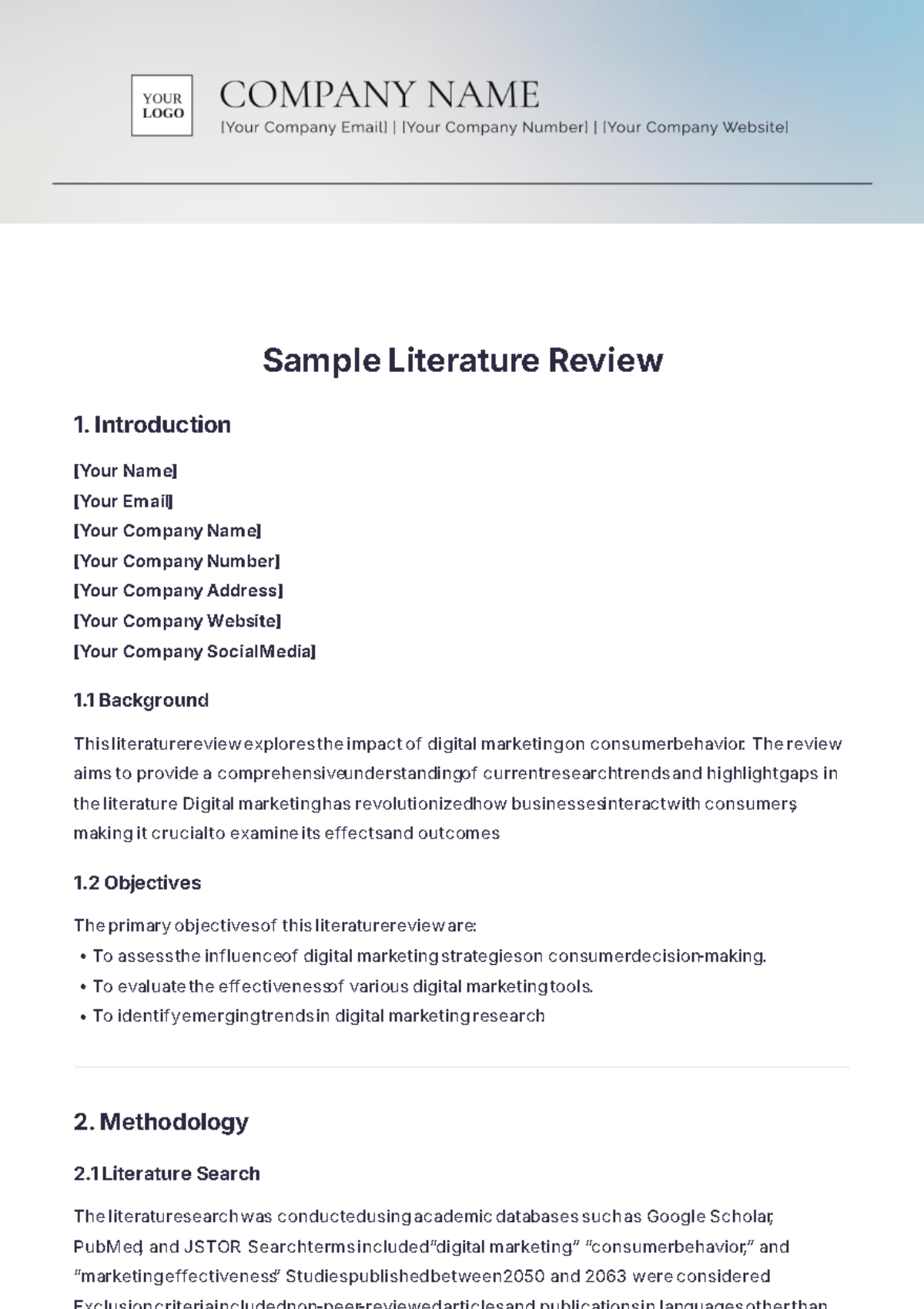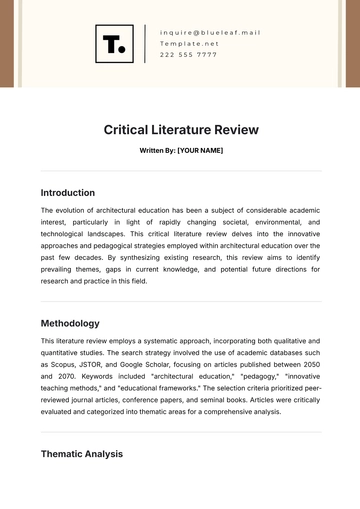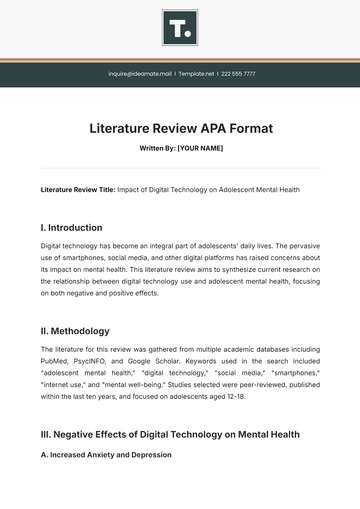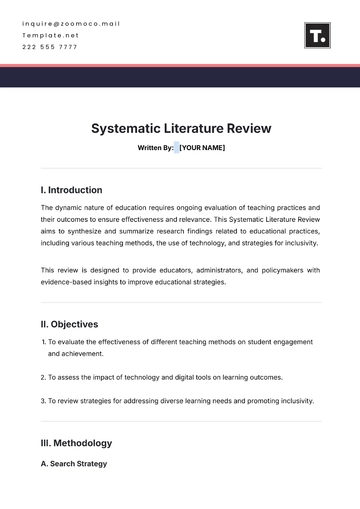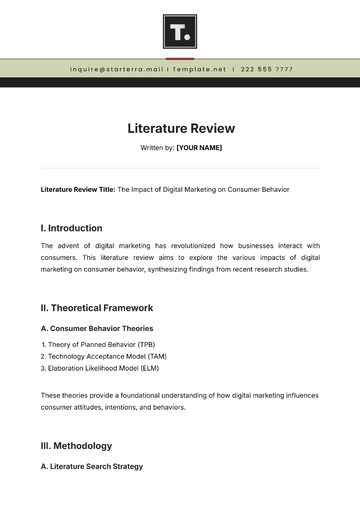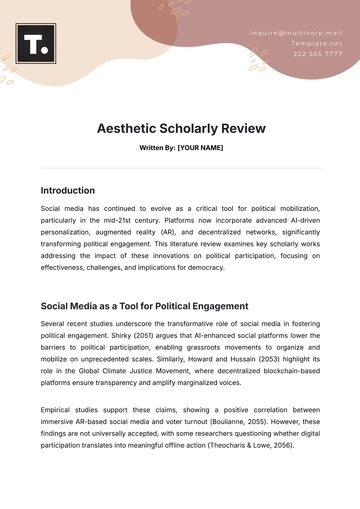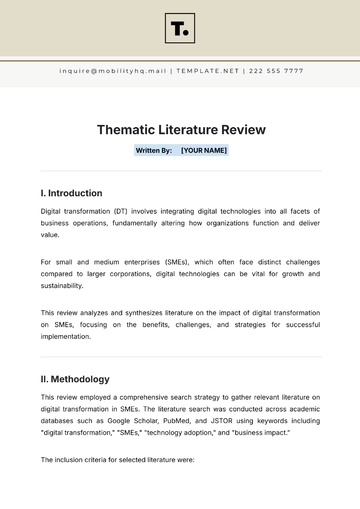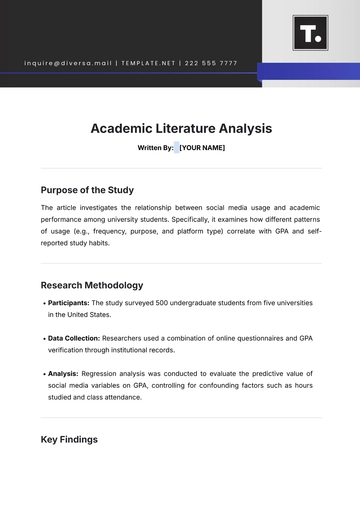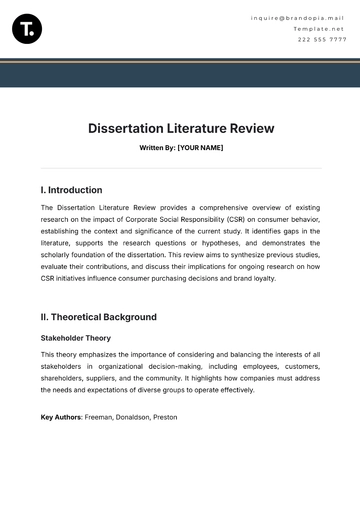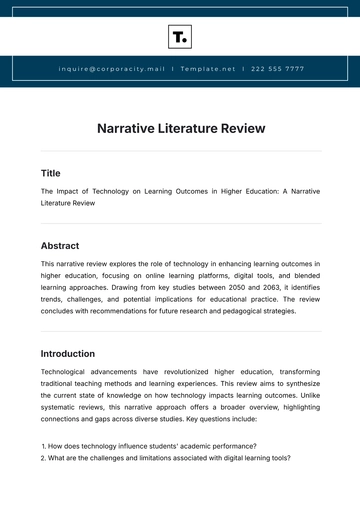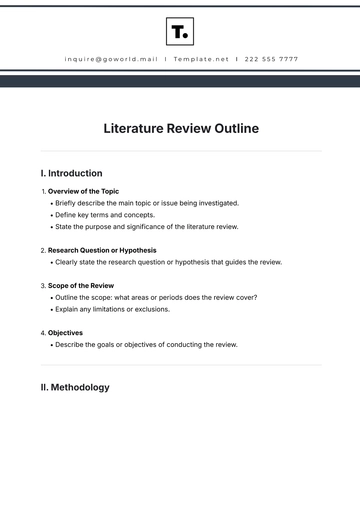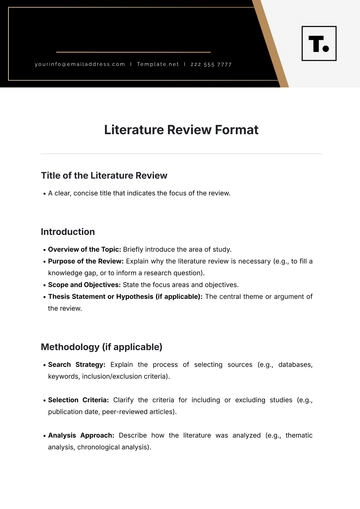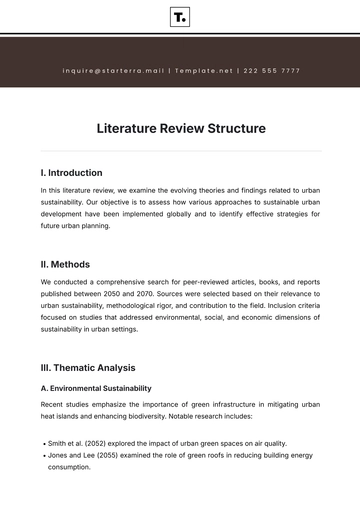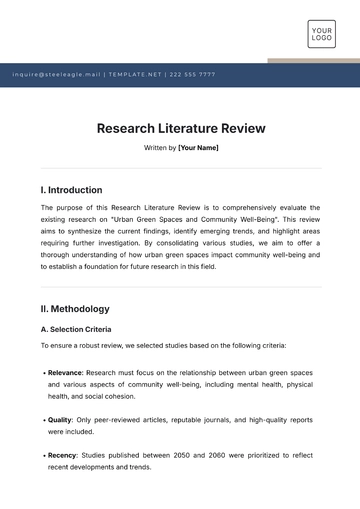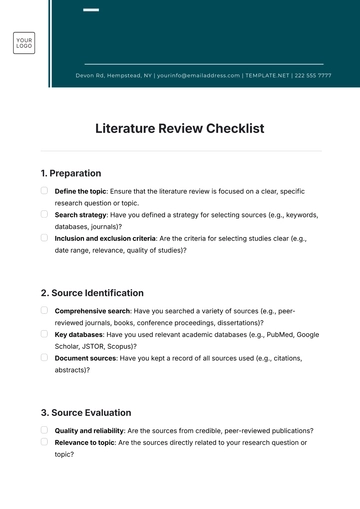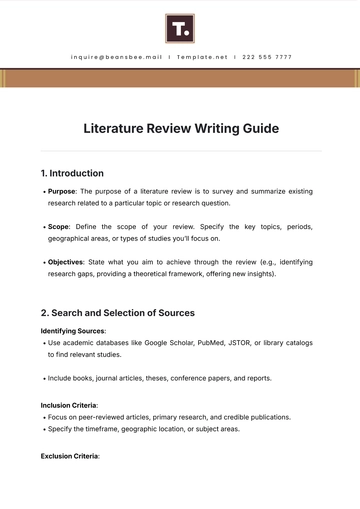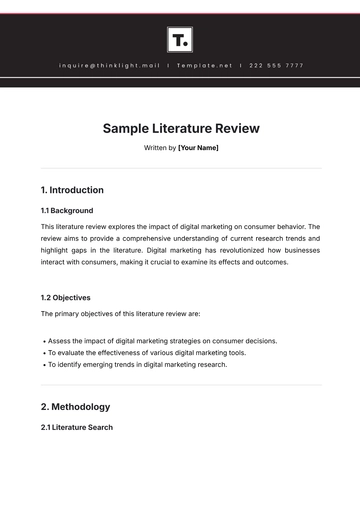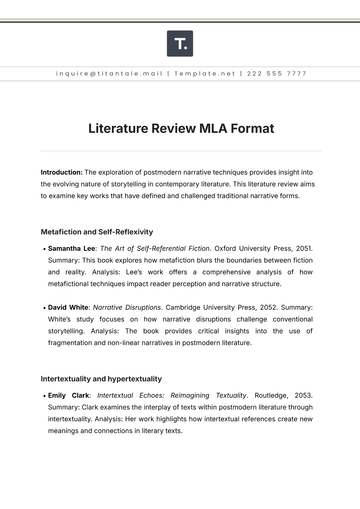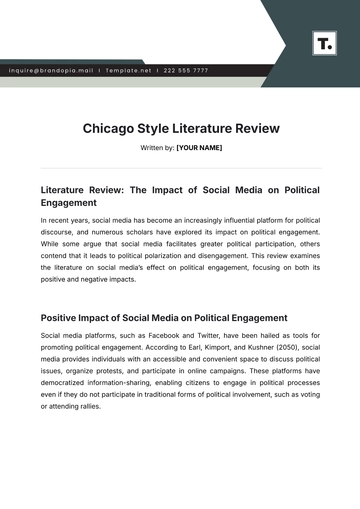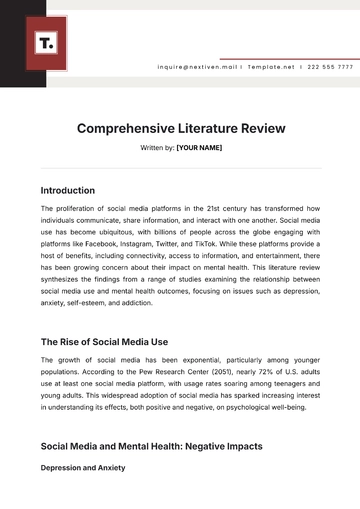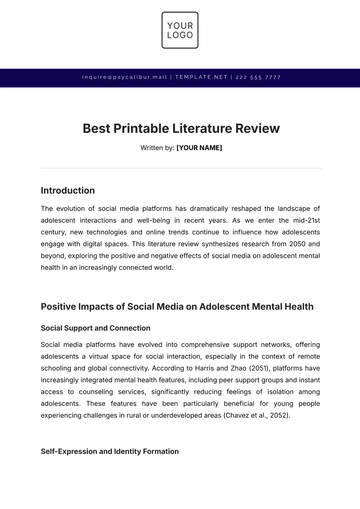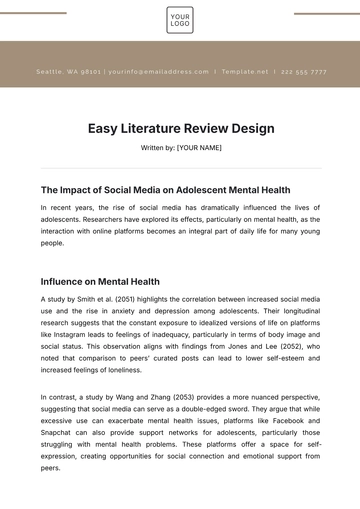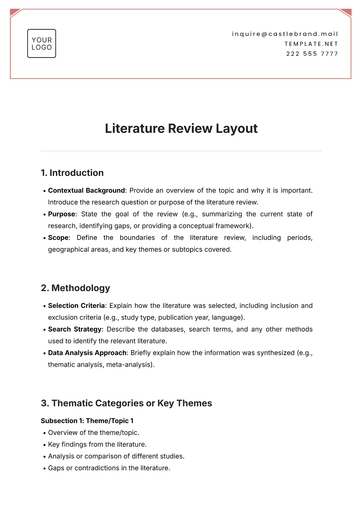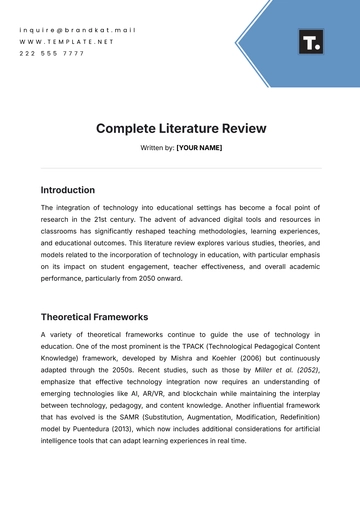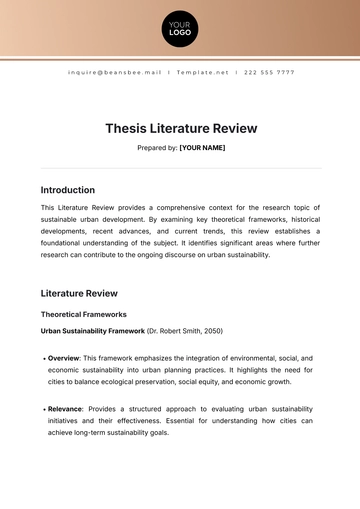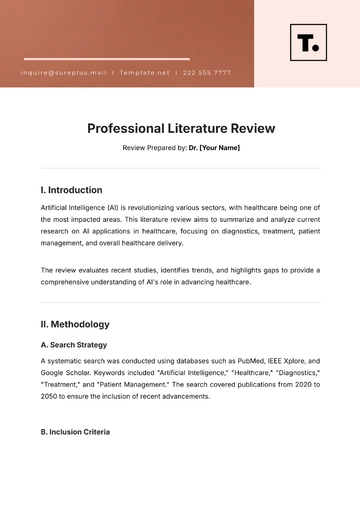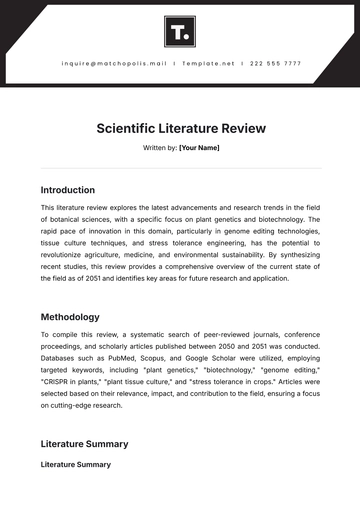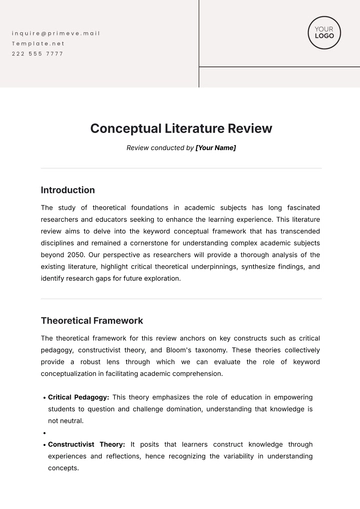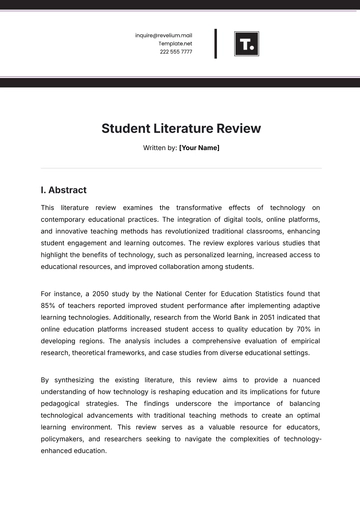Sample Literature Review
Written by [Your Name]
1. Introduction
1.1 Background
This literature review explores the impact of digital marketing on consumer behavior. The review aims to provide a comprehensive understanding of current research trends and highlight gaps in the literature. Digital marketing has revolutionized how businesses interact with consumers, making it crucial to examine its effects and outcomes.
1.2 Objectives
The primary objectives of this literature review are:
Assess the impact of digital marketing strategies on consumer decisions.
To evaluate the effectiveness of various digital marketing tools.
To identify emerging trends in digital marketing research.
2. Methodology
2.1 Literature Search
The literature search was conducted using academic databases such as Google Scholar, PubMed, and JSTOR. Search terms included “digital marketing,” “consumer behavior,” and “marketing effectiveness.” Studies published between 2050 and 2063 were considered. Exclusion criteria included non-peer-reviewed articles and publications in languages other than English.
2.2 Data Extraction
Data was extracted using a standardized form, which included study objectives, methodologies, findings, and limitations. Extraction was performed using NVivo software to ensure systematic and consistent data collection.
3. Literature Review
3.1 Theme 1: The Influence of Social Media Marketing
Summarize the key findings related to social media marketing. Discuss significant studies, theories, and arguments.
Study 1: Johnson, R., & Lee, M. (2055). The Impact of Social Media Influencers on Consumer Trust. Journal of Digital Marketing, 39(2), 145-167. This study found that social media influencers significantly enhance consumer trust and engagement.
Study 2: Adams, S. (2053). Social Media Advertising and Consumer Purchase Intentions. Marketing Review, 30(4), 702-721. This research highlights that targeted social media ads can increase purchase intentions among users.
3.2 Theme 2: Mobile Marketing Strategies
Summarize the key findings related to mobile marketing strategies. Discuss significant studies, theories, and arguments.
Study 1: Turner, A., & Patel, N. (2057). Effectiveness of Mobile Marketing on Consumer Retention. Mobile Marketing Journal, 18(1), 52-68. The study demonstrates that personalized mobile marketing messages enhance customer retention rates.
Study 2: Brown, L., & Nguyen, T. (2052). Mobile App Usage and Consumer Engagement. Journal of Interactive Marketing, 25(3), 215-234. Findings indicate that mobile app features directly influence consumer engagement levels.
4. Discussion
4.1 Synthesis of Findings
The reviewed studies collectively indicate that digital marketing, particularly through social media and mobile platforms, plays a pivotal role in shaping consumer behavior. Social media influencers and mobile marketing strategies have been identified as key factors influencing consumer trust and engagement.
4.2 Gaps in the Literature
Despite the insights gained, there are gaps in understanding the long-term effects of digital marketing strategies on brand loyalty and customer lifetime value. Further research is needed to explore these aspects in greater depth.
4.3 Implications
The findings suggest that businesses should leverage social media and mobile marketing to enhance consumer engagement and trust. Additionally, marketers should consider the evolving nature of digital platforms to stay ahead of emerging trends.
5. Conclusion
This literature review provides a detailed examination of the impact of digital marketing on consumer behavior. It highlights the effectiveness of social media and mobile marketing strategies and identifies areas for further research.
6. References
Johnson, R., & Lee, M. (2055). The Impact of Social Media Influencers on Consumer Trust. Journal of Digital Marketing, 39(2), 145-167.
Adams, S. (2053). Social Media Advertising and Consumer Purchase Intentions. Marketing Review, 30(4), 702-721.
Turner, A., & Patel, N. (2057). Effectiveness of Mobile Marketing on Consumer Retention. Mobile Marketing Journal, 18(1), 52-68.
Brown, L., & Nguyen, T. (2052). Mobile App Usage and Consumer Engagement. Journal of Interactive Marketing, 25(3), 215-234.
Literature Review Templates @ Template.net
